D i n n i n g t o n H i g h S c h o o l


K E Y S T A G E 4 O P T I O N S
2023/24


D i n n i n g t o n H i g h S c h o o l


K E Y S T A G E 4 O P T I O N S
2023/24

Over the coming weeks you will be making decisions with your child about their choices of subjects to study in years 10 & 11. All children will be expected to complete homework (ILTIndependent Learning Tasks) in KS4 and the requirements for this aspect of the course are also outlined in this booklet.
This booklet contains all of the information about the courses on offer and will help you make the best choices for your child.
As you are receiving this booklet after they have chosen their initial options, there won’t be a further information evening about this, but if you have any questions at all, please contact your child’s form tutor or Mr Williams (teaching head of year) on r.williams@din.leap-mat.org.uk
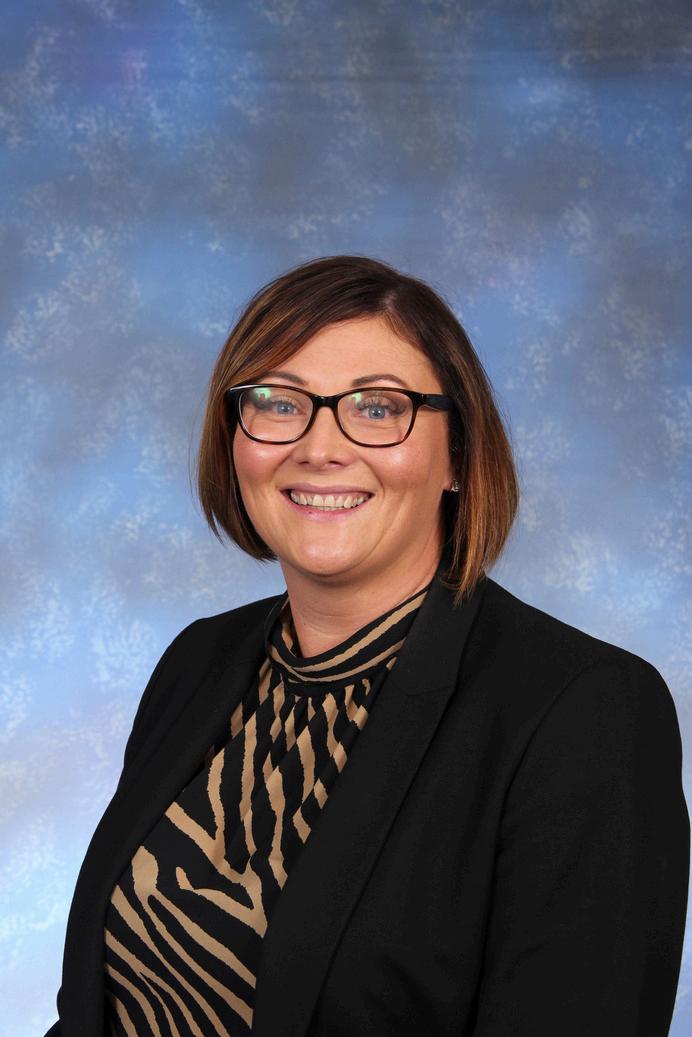 Mrs Kerry Wade
Mrs Kerry Wade

Core subjects at Key Stage 4
Core PE (GCSE PE / BTEC Sport can still be chosen in the options below)
* Students will have 5 lessons in one week and 4 lessons in the next week.
Optional subjects at Key Stage 4
Your choice of subjects here will make up the other periods of the week You will study 3 options subjects
This is the list of subjects you can choose from.
• You must make 3 choices and a 4th back up choice.
• You will submit your choices on the google form by Monday 5th February, 2024 Options 2023-24
SUBJECT
Business Studies
Citizenship
Childcare
Dance
Engineering
Food and Cookery
Fine Art
Health & Social Care
IT
Photography
PE - BTEC Sport
History/ Geography/ Spanish / French
You must pick one of these as a core subject, but you can pick another if you would like. You should be aware this will require you to be resilient with additional revision and examinations.
Think seriously before making your decisions
Take account of your strengths and importantly, what you enjoy!
Find out as much as you can about what each subject involves
Think about what you would like to do after GCSEs
Choose a subject because a friend is doing it
Choose a subject because you like your current teacher of that subject
Further Education:
You can continue your education either in Sixth Form or at one of the local colleges.
Employment/Training:
You can find a job or more likely a training placement which will prepare you for a certain job. Whatever route you intend to take, it is important that you end Key Stage 4 with the very best grades you can
The national benchmark is a grade 5 in English and Maths, but it is crucial that you achieve your minimum expected grades
Employers and training providers regard this as an important standard of education. In further education you will need that standard to go on to advanced courses, which can in turn lead to university.
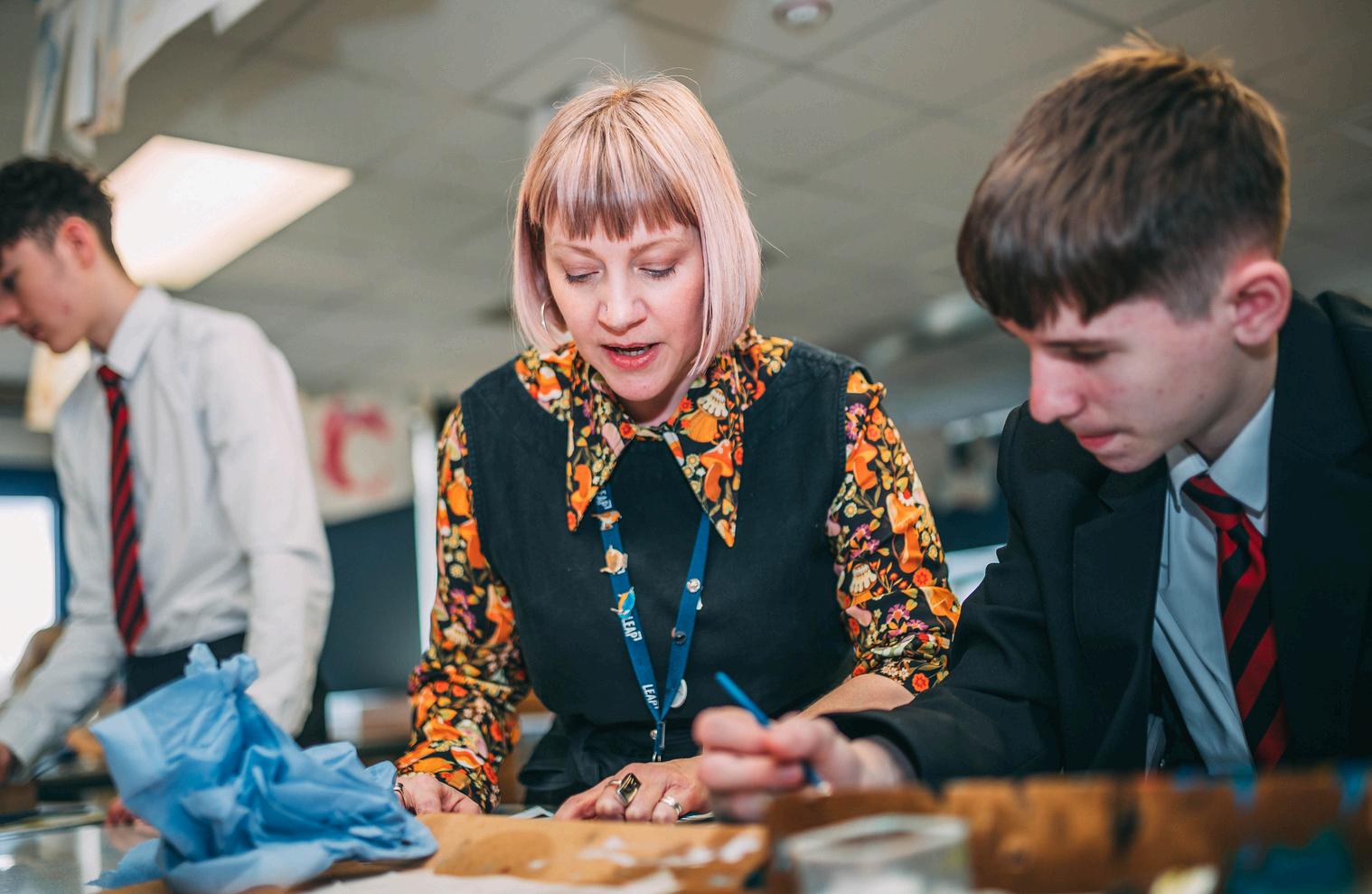
Studying the arts offers you freedom in what you study based around your own interests rather than following prescribed topics You are encouraged to be independent in your decision making and reflect upon your choices
Arts graduates are incredibly employable! Steve Jobs (founder of Apple) believed his success was due to his hiring of artists and musicians who were fascinated by technology
Creativity is now ranked third in the top ten skills desired by employees, moving up from tenth place in 2015.
1 in 8 adults in London work in the creative industries; 1 in 11 in the UK The creative economy has risen by 13 7% since 2011 against an average increase of 2.1% in total jobs in the wider economy
You will learn a range of transferable skills that will be essential in all jobs such as: resilience, creative thinking, independence and observation skills
Component One: Personal portfolio
This is a portfolio of work that shows coverage of the four assessment objectives.
You will be given a title as a starting point, which you then independently research to develop ideas You will discover and mimic artists that influence you and trial and test a variety of techniques from: glass, ceramics, print, paint and pencil. You will develop a personal style, and form opinions about your art and the art of others You will communicate your ideas and intentions through a range of personal experiments and unique creative outcomes
Component Two: Externally set assignment
This is a mini portfolio of work in which you respond to a starting point set by the exam board In the same way as component one, you will cover all four assessment objectives whilst undertaking this creative journey You can create art in the media of your choice exploring new techniques or refining favourites
This project will conclude with you creating a final outcome in a 10-hour formal assessment (over two days)
Component One: Personal portfolio – 60%
Component Two: Externally set assignment – 40%
It is essential that all four Assessment Objectives are met by each unit of work, or project 25% of the marks are available for each Assessment Objective.
Students are assessed on their ability to:
AO1 Develop ideas through investigations, demonstrating critical understanding of sources
AO2 Refine work by exploring ideas, selecting and experimenting with appropriate media, materials, techniques and processes
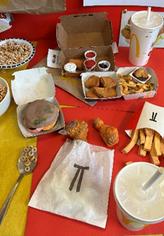
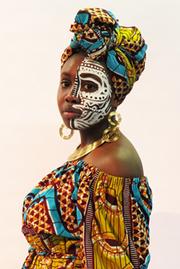
AO3 Record ideas, observations and insights relevant to intentions as work progresses
AO4 Present a personal and meaningful response that realises intentions and demonstrates understanding of visual language
What skills will I need?
The art GCSE course offers students the opportunity to develop their creative ideas and practical skills in a variety of ways. Painting, drawing, collage, digital art, printmaking, fused glass, ceramics and sculpture are the main specialisms alongside studying the work of other artists The projects are more thematic than at KS3 and allow the students to explore more personal ideas and particular techniques Students are encouraged to work from observation and individual research in order to creatively develop their own ideas using a variety of materials and media – and demonstrate a skilful and sensitive command of techniques
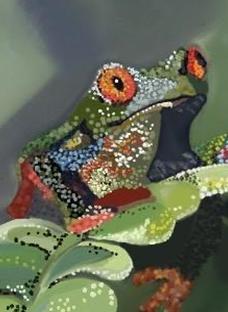
Students will be expected to demonstrate the ability to record ideas, observations, insights and independent judgements visually and through informative written annotation, using suitable specialist vocabulary In order to be successful, a high degree of interest and commitment is more important than having an artistic ability.
Studying art is a favoured route for related careers in the creative industries such as: graphic design, game design, architecture, engineering, interior design, industrial design, product design, theatre design, fashion & textiles, advertising, illustrating, photography and many more
What will happen in learning and ILT?
All lessons will be practical and based in the art rooms Students are expected to do all research tasks at home, in art P6 or in the Learning Resource Centre Occasionally there will be opportunities to work outside the classroom on location based photoshoots, educational visits and outdoor drawing tasks.
All students have a personalised plan, which is updated during 1:1 tutorials Students will be setting their own classwork and ILT, so need to be organised, responsible and proactive
Students are expected to complete a minimum of two hours ILT per week. We recommend this to be undertaken at the weekend when students can spend two consecutive hours on their practical tasks
Ever thought of becoming a lawyer, a police officer or working in public office?
GCSE Citizenship study prepares you to apply critical thinking skills like reasoning, analysis and interpretation, all of which ranked a key skill in the workplace by recruitment giant Indeed You will gain a deeper knowledge of democracy, government, and the law, developing skills to create sustained and reasoned arguments, present various viewpoints and plan practical citizenship actions to benefit society You will also gain the ability to recognise bias, critically evaluate argument, weigh evidence, and look for alternative interpretations and sources of evidence, all of which are essential skills valued by higher education and employers.
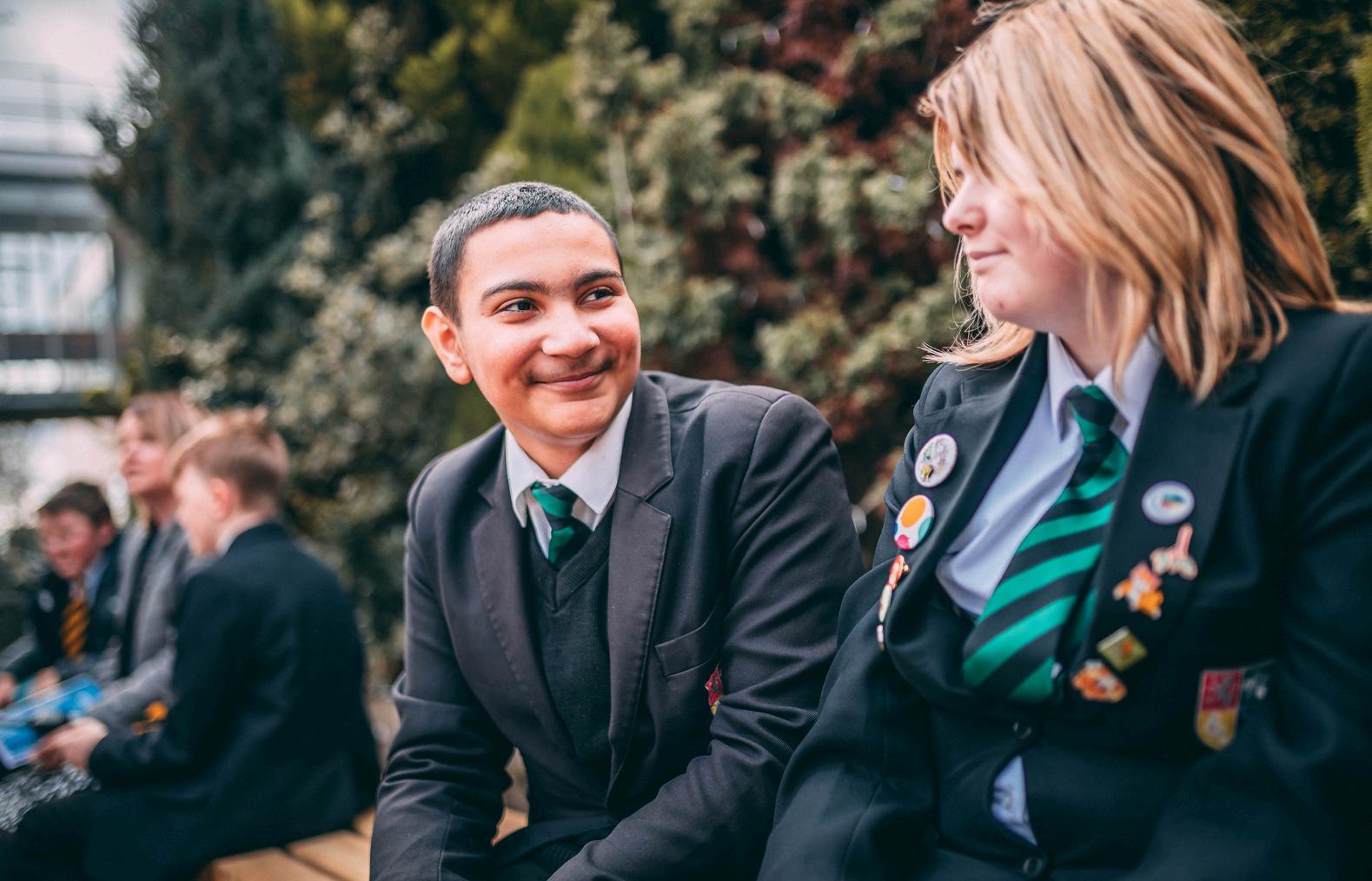
The course consists of 3 components:
Life in modern Britain
This looks at the make-up and dynamics of contemporary society, what it means to be British, as well as the role of the media and the United Kingdom’s role on the world stage
Rights and responsibilities
This looks at the nature of laws, rights and responsibilities within the UK It has a global aspect due to the nature of international laws, treaties, and agreements by which the UK abides
Politics and participation
This third theme aims to develop understanding of the political process, the knowledge and skills necessary to understand how to resolve issues, bring about change, and how the empowered citizen is at the heart of our society
Alongside studying classroom content, students will be expected to either work alone or with others to carry out an investigation into a citizenship issue based upon any part of the subject content.
How will I be assessed?
You will be externally assessed through two written examinations each lasting 1 hour 45 minutes at the end of the course.
To make sure you are prepared for the exams, assessment will be on-going throughout the course
Regular tests will allow you to practise exam style questions and improve your understanding of the course
What skills will I need?
Analytical and strategic thinking
Debating skills
Research skills
Critical evaluation
Teamwork
Conflict resolution
Problem-solving
Leadership skills
Written communication skills
Enquiry
What will happen in learning and ILT?
GCSE Citizenship lessons will include a variety of different learning activities These include whole class discussion work, debates and community project work. You will be required to work both independently and in groups regularly to contribute your ideas and opinion. You will also partake in written tasks, as well as watching and analysing the media coverage of pivotal news stories through news footage, current affairs podcasts and printed news articles
ILT will be set weekly and include both knowledge retrieval and the application of knowledge and skills If you enjoy debating how the country is run and hot topics in the news, GCSE Citizenship is an excellent option for you!
Childcare at Wingfield is an excellent subject to choose if you aspire to work with young children in the future. This may be in an early years setting such as a nursery, or in any number of roles that require an understanding of child development, such as nursing or social work
Childcare is a course that equips you with study skills that can be incredibly useful in your life after Wingfield, as you will be researching, writing and referencing at a college level
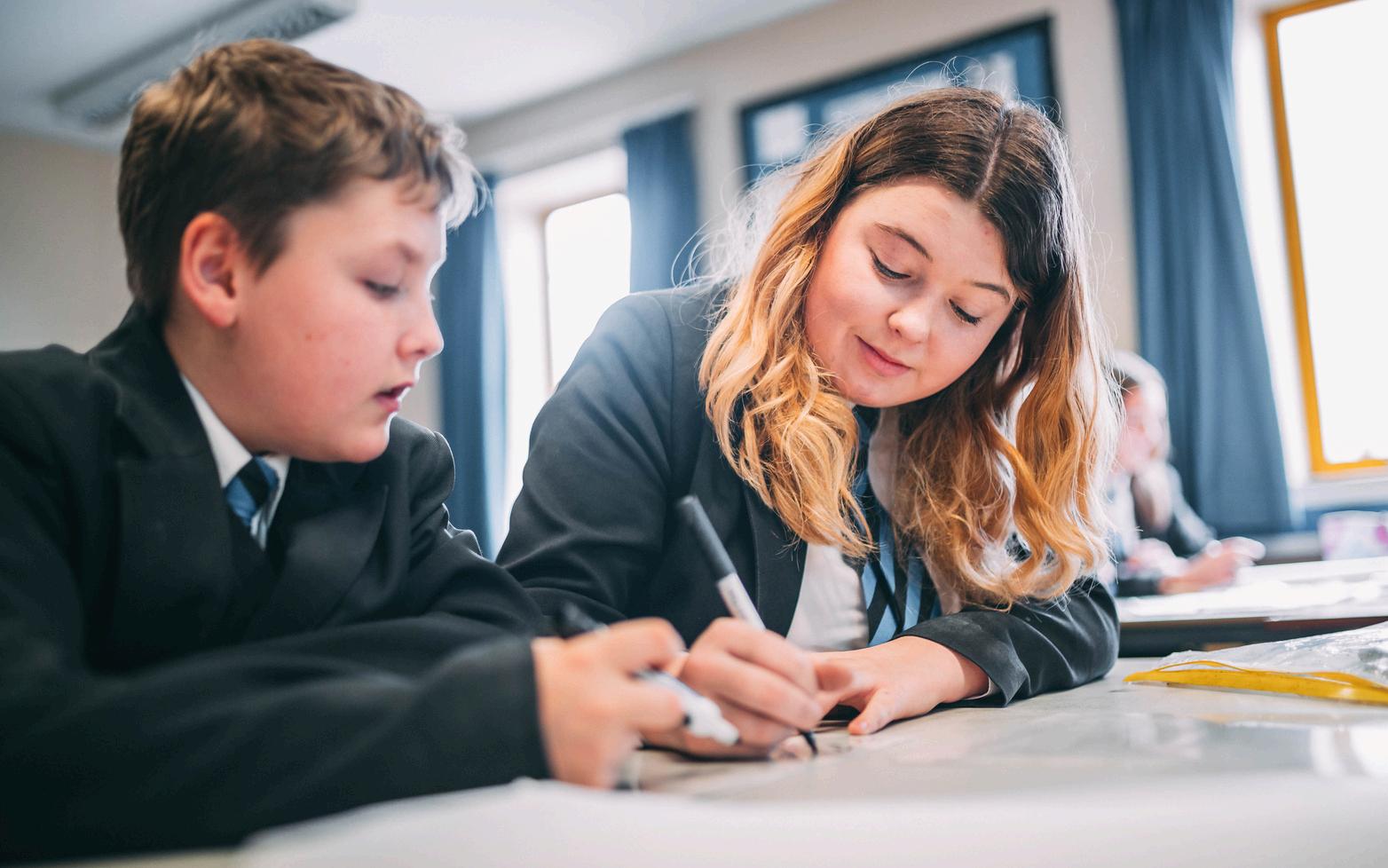
This course is made up of a none examined assessment (NEA), which you will study for throughout Year 10 and complete in Year 11 The tasks you are given are professional tasks that you would be expected to carry out if you worked in an early year’s setting such as activity planning and risk assessments
You will cover content on the role of an early year’s practitioner, the development of children aged 0-5, transitions that children may experience and factors that can affect their learning and development.
How will I be assessed?
The overall course is assessed by 50% exam and 50% nonexamined assessment (NEA) The NEA is marked internally
The exam is marked externally, you will sit one paper that is an hour and a half long in the summer exam series of Y11
The exam is worth 50% of the final grade.
What skills will I need?
Writing is a key skill in childcare, NEA and a written exam there is a lot of extended writing involved in the course and so you must be proficient and willing to write independently for extended periods of time.
The main skill required for this subject is the ability to research well You must be able to research and write independently during lessons
A good understanding of ICT is needed as you will be using Google Documents and different search engines to find information
What will happen in learning and ILT?
Lessons are all computer based and you will spend a large percentage your time researching and learning content for your NEA and exam
During work experience at the end of year 10, we prioritise childcare students to have a placement in an early year’s setting to gain experience ILT is set once every two weeks on Google Classroom, and it is often exam based to give you experience answering exam style questions.

Why should I study Dance?
Dancing promotes a positive physical and mental health lifestyle Dancing helps boost your self-esteem, social skills and general well-being. In dance confidence is key when taking to the stage therefore embedding it into your everyday life
Possible career opportunities; Professional performer, choreographer, dance instructor, movement therapist, artistic director and many more
Component 1: Exploring the Performing Arts
You will develop your understanding of performing arts by examining work of performing arts professionals and the processes used to created performance
Component 2: Developing skills and techniques in the Performing Arts
You will develop your performing arts skills and techniques through the reproduction of dance repertoire as a dancer.
Component 3: Responding to a brief
You will work as part of a group to contribute to a workshop performance responding to a brief and stimulus.
How will I be assessed?
Component 1: Exploring the Performing Arts
(30% of overall grade)
This is assessed through practical and theory coursework
Practical: Stylistic workshops (Recorded)
Theory: Portfolio (Evaluating practical workshop and professional works, both off and onstage job roles)
Component 2: Developing skills and techniques in the Performing Arts
(30% of overall grade)
This is assessed through practical and theory coursework.
Practical: rehearsal and performance assessment in front of a live audience
Theory: Written rehearsal logs
Component 3: Responding to a brief (40% of overall grade)
This is assessed through written and practical exams
Written exam 1: Initial Ideas Log (1 hour)
Written exam 2: Rehearsal Log (1 hour)
Practical Exam: Devised Performance in front of a live audience
Written exam 3: Evaluation Log (1 hour)
Written notes can be taken into the exam.
What skills will I need?
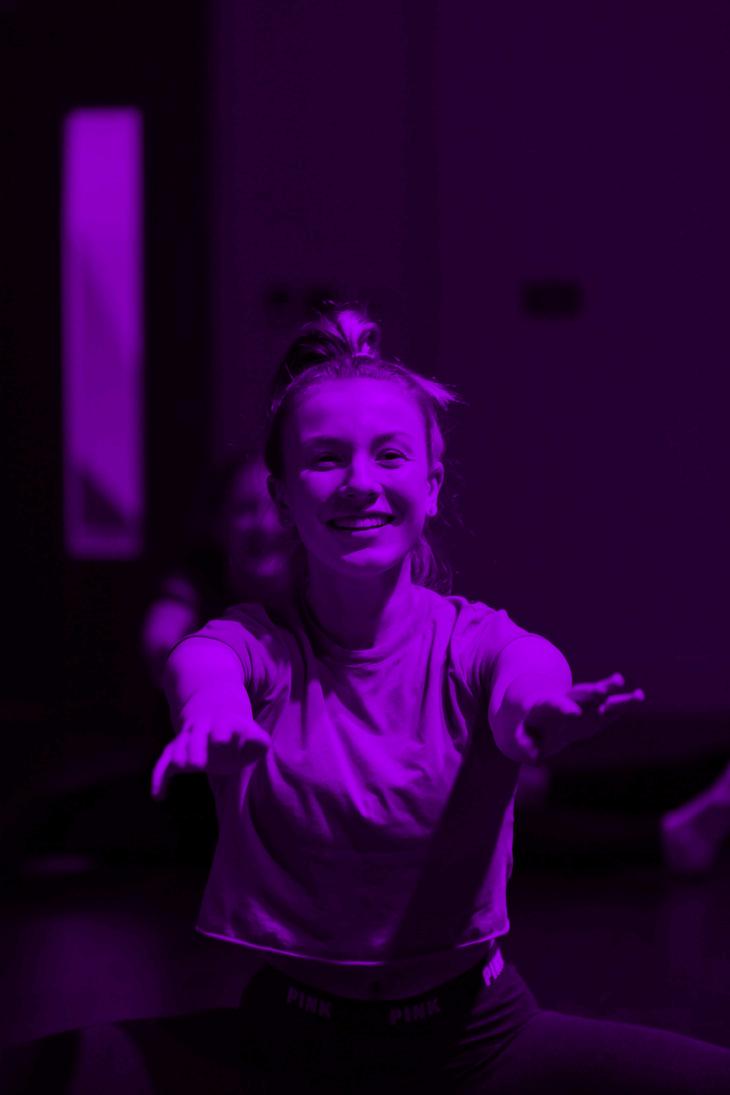
Collaboration and team skills
Confidence and creativity
Dedication and reliability
Desire to improve physical technique
Enthusiasm and passion for dance
Interest in gaining/ developing knowledge of professional dance works
Self-reflection and evaluation (Verbal and written)
What will happen in learning and ILT?
Lessons will be a mix of practical and theory lessons
Practical lessons – these are physically active lessons where you will participate in teacher/ student led workshops, rehearse performances and regularly perform with evidence being collated.
Theory lessons - All theory lessons and written exams are computer based; completing research tasks, coursework assignments and exam preparation.
ILT will be set regularly, including task such as creating choreography, practising choreography, completing research and evaluation tasks alongside completing coursework assignments
The disciplines that a learner will study within the qualification include: mechanical, electrical and electronic, aerospace, communications, chemical, civil, automotive, biomedical, software
Learners could progress to a wide range of apprenticeships, A level courses in Maths, Science, Engineering and Technology or a variety of Diplomas in Engineering. This qualification will also prepare learners for recruitment into the armed forces in the Army, Royal Air Force or the Royal Navy
The study of engineering is the application of maths and science to solve real world problems This involves an understanding of the different disciplines of engineering and how they have shaped the products and projects of the modern world You will also learn about engineers such as Henry Ford and Alexander Bell Learners will be able to read technical drawings, select appropriate materials along with tools and machinery, and know how to carry out a practical task, working in a safe manner in line with current health and safety legislation
Written Exam Paper - 1 hour 30 minutes
40% of the final grade
The written paper will include: multiple-choice questions, a varying number of short-answer questions, three 9mark extended response questions, equations, SI units
Synoptic Brief - 22 hours
60% of the final grade
Synoptic assessment enables learners to show that they can transfer knowledge and skills learnt in one context to resolve problems raised in another by designing and making a product This will consist of a portfolio of research and engineering drawings (done by hand and on AutoCAD) and the product that has been made Each year a different brief will be issued by the exam board, this has previously been tool box, bird box and a dump truck

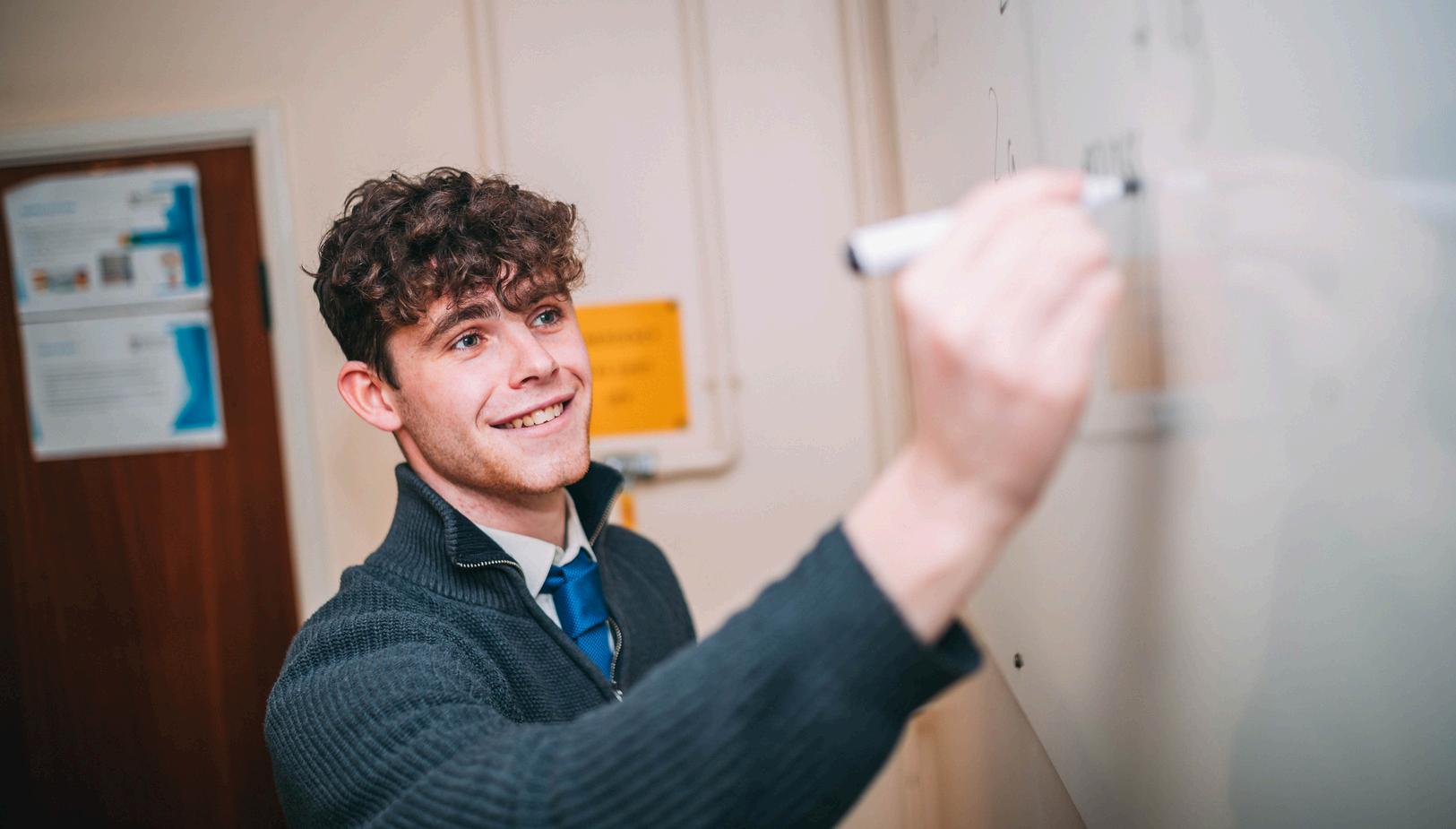
What skills will I need?
Drawing skills
Making skills
CAD skills
Mathematic and Scientific principles
Problem
Solving skills
What will happen in learning and ILT?
Lesson time will consist of one practical lesson and four fun and engaging theory lessons every two weeks
There will also be a number of trips and workshops that will enhance learning and provide future opportunities.
ILT- Students will be expected to complete 1-2 lessons per week in the learner workbook and 30 minutes practice using the revision cards. A parent/guardian’s signature will be required to confirm this has been done
Scientists investigate that which already is. Engineers create that which has never been.
Albert Einstein
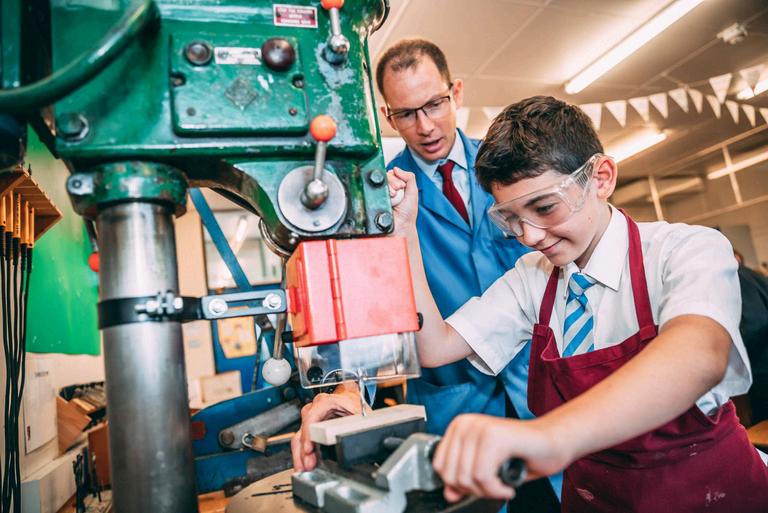
Studying Level 1/2 Technical Award in Food and Cookery will give pupils the fundamental skills and knowledge they’ll need to prepare for a career in the hospitality and catering sector This qualification covers key subject areas, from food health and safety and information on key food groups and key nutrients, to recipe development, amendment and evaluation.
Upon completion of this course, students will be qualified to go on to further study such as a T level in catering, Level 3 applied certificate/Diploma in Food Science and Nutrition. Apprenticeships as a production chef, commis chef or chef de partie
1. Health and safety relating to food, nutrition and the cooking environment
2. Food legislation and food provenance
3 Food groups, key nutrients and a balanced diet
4. Factors affecting food choice
5 Food prep, cooking skills and techniques
6. Recipe amendment, development and evaluation
7 Menu and action planning for completed dishes
How will I be assessed?
WrittenPaper-1hour30minutes
40% of the final grade
The written paper will include: Multiple choice questions, short answer questions and extended response questions (80 marks).
Non-ExamAssessment
60% of the final grade
Students' knowledge, skills and understanding in relation to the planning, preparation, cooking, presentation of food and application of nutrition related to the chosen task
What skills will I need?
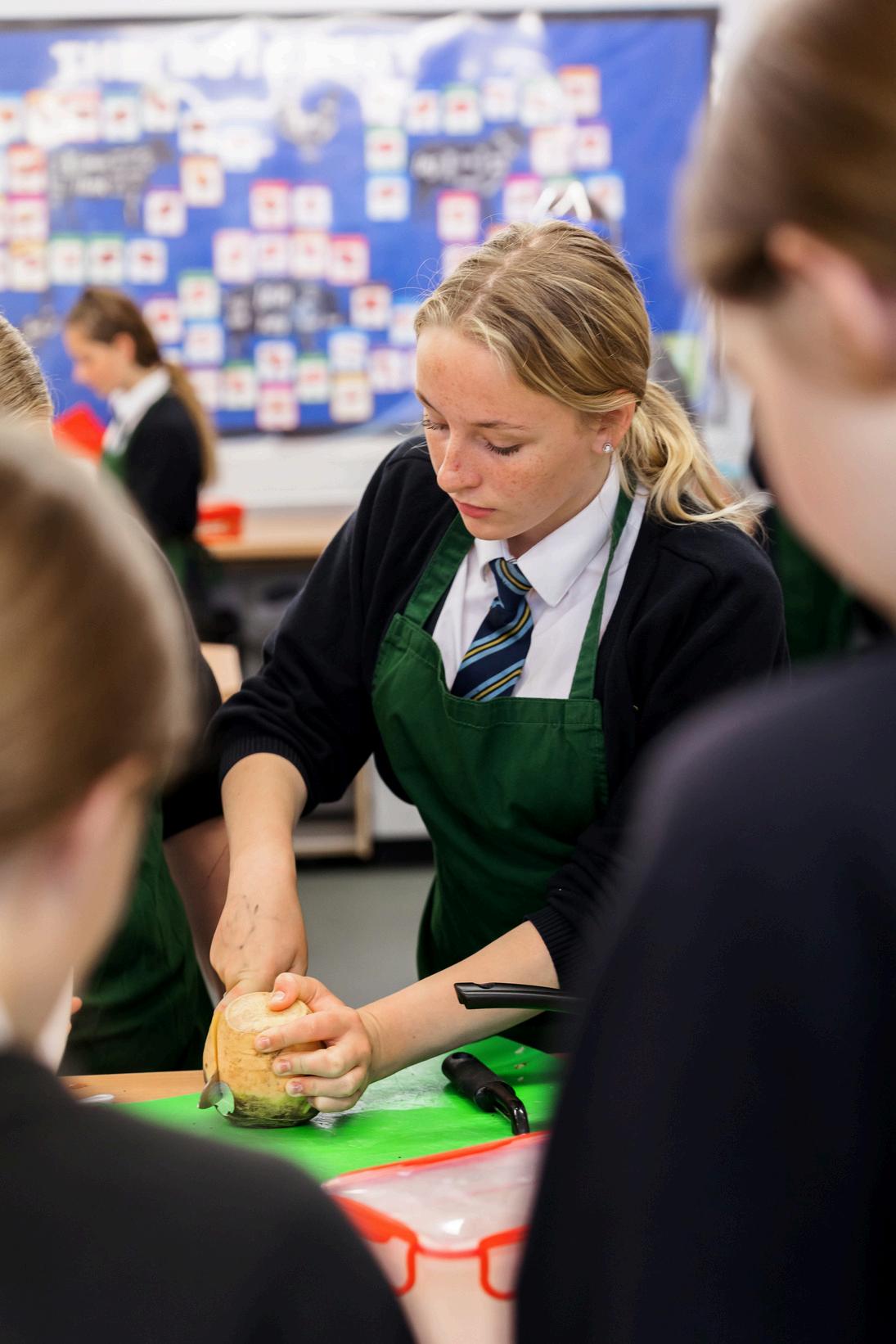
Writing skills
Understanding recipe adaptations
Interest in diet and nutrition
Problem solving
Professional behaviour
Organisational and planning skills
What will happen in learning and ILT?
Lessons will include a wide variety of theory lessons that cover all 7 content areas You will need to make sure you are organised and prepared for the practical lessons
There will be 1-2 practical lessons each term
Independent Learning Tasks will be set weekly and will reflect the learning that has taken place during each week of study
Geography is the study of the world in which we live, important in itself to know and understand. Geography will help you better understand the world’s people, places and environments from the local to the global scales. It helps you connect places and make well considered decisions as a global citizen.
With rising numbers of students studying this subject, and geography graduates experiencing some of the lowest levels of graduate unemployment, there has never been a better time to study geography
Additionally, geographical skills such as decision making and investigating are key in preparing for 21st century living and working.
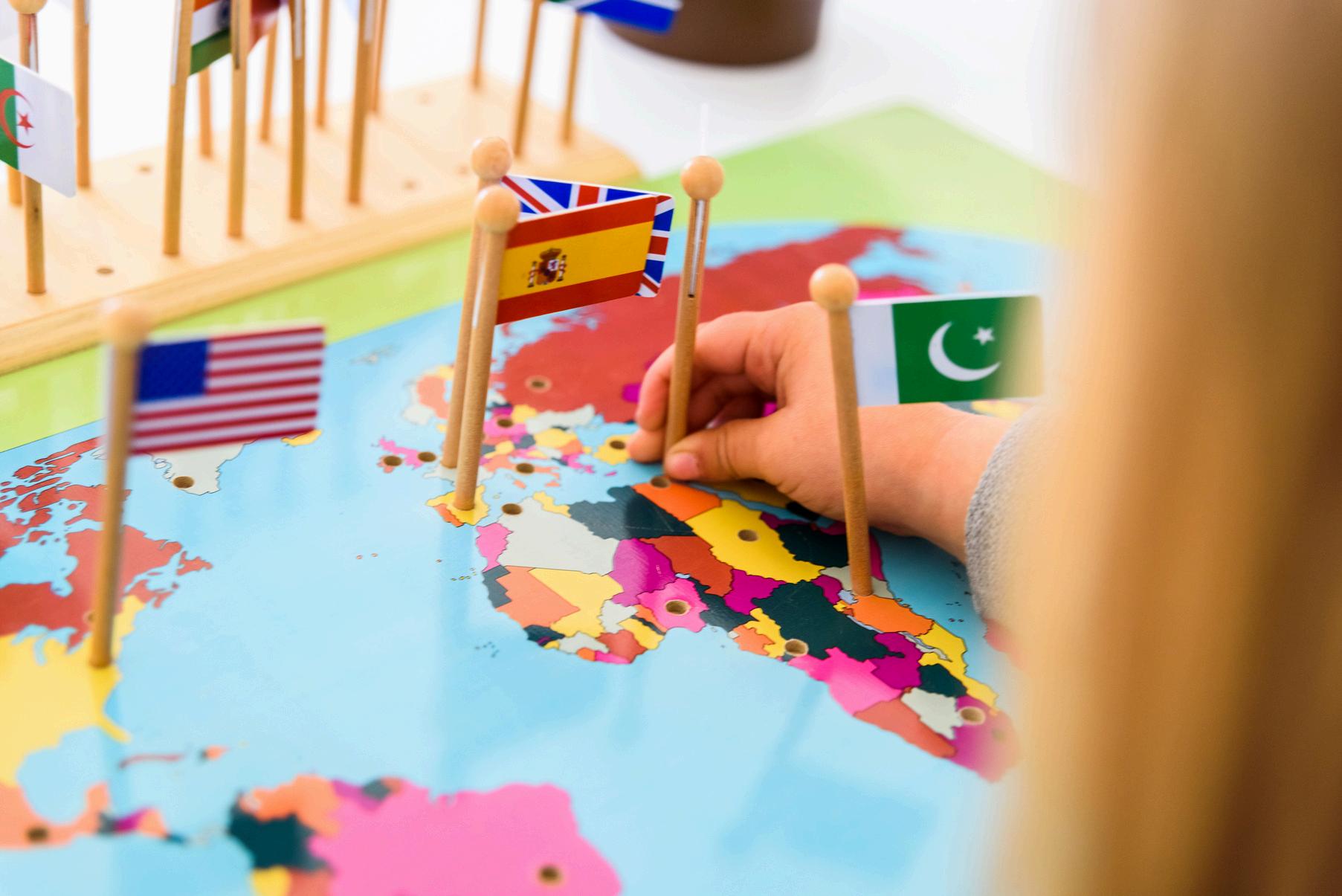
he Physical content includes Weather Hazards and Climate change, Ecosystems and Biodiversity and River/Coastal landscapes. This content allows you to understand key processes which affect our day to day weather, the fauna in our gardens and the reasons for natural disasters such as droughts, hurricanes and floods Many of these core concepts have been covered in Y9
Changing cities, Global development and Resources and Energy are all included in the Human paper. These allow is to develop an understanding of the inequality in society around wealth, resources and jobs. All features key to 21st century living
Paper 3 is based on Fieldwork skills and understanding the geographical challenges of the UK such as migration, climate change and transport There are 2 fieldwork trips where you practice data collection and geographical concepts in real life
How will I be assessed?
The course consists of 3 exam papers with no coursework element anymore. The skills we work on during the 2 fieldwork trips will be assessed in paper 3:
The Physical Environment
37 5% - 1hr 30mins
The Human Environment
37.5% - 1hr 30mins
Geographical Investigations: Fieldwork and UK Challenges
25% - 1hr 30mins
What skills will I need?
Geography is based around the skills of geographical investigation, using this information and data to be able to write in detail and in a balanced manner to form geographical decision and learning.
We expect you to be focussed, resilient and well considered in your learning and geographical decisions
What will happen in learning and ILT?
Lessons are based around a key idea or concept in geography with tasks such as data analysis, explanation of patterns, understanding viewpoints and developing problem solving solutions.
We use ICT, recent documentaries and clips alongside tasks such as discussions, decision making and investigation to understand the content
Y10 ILT is currently an online retrieval quiz based on previous content or exam application. During Y11 you will be expected to complete retrieval alongside an additional task such as revision, wider reading and example exam application
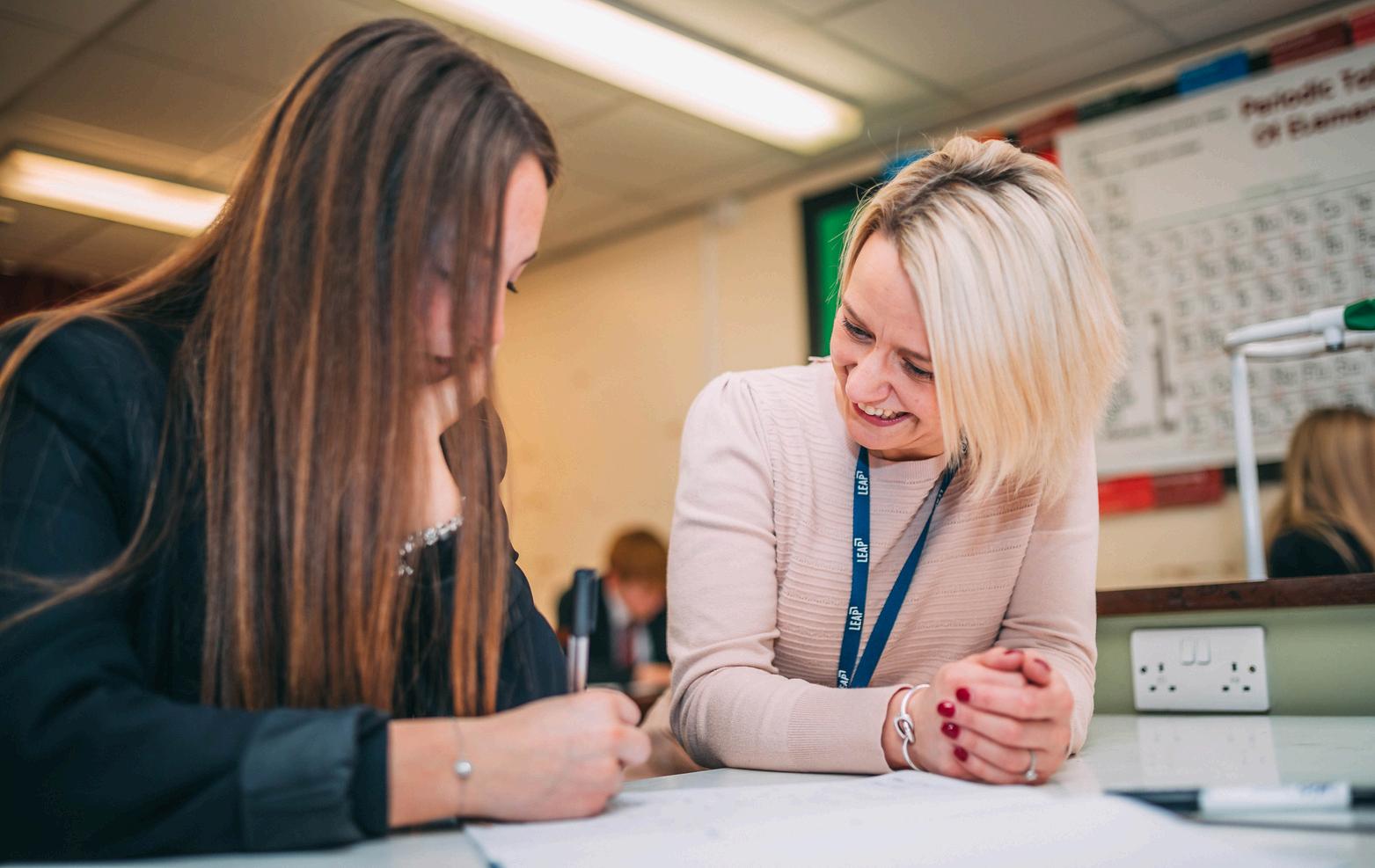
If you have a passion for helping people and wanting to make a difference to their lives then Health and Social Care will provide you with the knowledge and understanding to take on further study and work or train in careers such as:
• Registered care homes
• Social work
• Hospital and primary care trusts
• Nursing homes
• Health centres
A BTEC Tech Award prepares you for employment and provides a good grounding to go onto a more advanced course such as BTEC Level 3 National Extended Certificate/Diploma in Health & Social Care
You will look at how people grow and develop from birth up until the end of their life. You will study the impact of different factors such as relationships and lifestyle factors on growth and development. You will then study how different life events such as parenthood and bereavement may impact on growth and development and how support and personality traits can help them to adapt to these life events
You will study how different service providers and social care services meet the needs of services users. You will look at the types of barriers which may prevent a service user from accessing a service. You will find out about the different skills, attributes and values which are important in the health and social care profession.
You will look at the factors that can have a positive or negative influence on a person’s health and wellbeing You will learn to interpret physiological and lifestyle indicators, and what they mean for someone’s state of health You will develop the knowledge and understanding of how this information is used to recommend appropriate actions for improving a person’s health and wellbeing. You will also explore the difficulties an individual may face when trying to make these changes.
How will I be assessed?
Component 1 is assessed by an internally assessed and externally moderated assignment, consisting of 3 tasks which is set by the exam board This involves extended amounts of time typing up your work on a computer.
Component 2 is assessed by one internally assessed and externally moderated assignment, consisting of five tasks This involves extended amounts of time typing up your work on a computer
Your internally assessed assignments are worth 60% of your overall grade
Component 3 is an externally assessed exam lasting two hours. This exam paper is marked out of 60 and includes extended written answers This is worth 40% of your overall grade.
What skills will I need?
What are the things that will make me successful in this subject?
You will need the ability:
Get involved in group discussions
Self manage
Meet deadlines
Organise your time
Work independently
You will need an interest in health and social care
What will happen in learning and ILT?
Theory lessons for the internally assessed components will: Introduce you to the content of each task for the Pearson Set Assignments (PSA’s)
Allow you to gain knowledge understanding of the component content
ILT is an expectation to support planning and completion of each Learning Aim
The exam component will involve regular practice of exam papers, particularly for ILT
You will be expected to attend a period 6 session for Health and Social Care.
Studying history helps us to understand the world around us, how the past has shaped global and national events and relationships and how this can link to our lives today. It explains the way that people and communities interact with each other even today!
History is seen as being a challenging topic and provides evidence of complex thinking and analytical skills which many employers want Even if you do not wish to work in education, law, politics or the heritage and tourism industry, History is a very desirable GCSE to have
Conflict and Tension 1918-1939
Britain, Health and the People Medieval to Modern
Germany Democracy and Dictatorship 1890- 1945
Elizabethan England 1568-1603
How will I be assessed?
No coursework
Four exam papers, one hour each paper 25% per paper
A mixture of sources questions, a few short answer questions, mainly essay answers, marks available for spelling grammar and punctuation
Examples:
Describe two ways the Wall Street crash of 1929 affected Germany
Explain the significance of Hippocrates in medieval medicine.
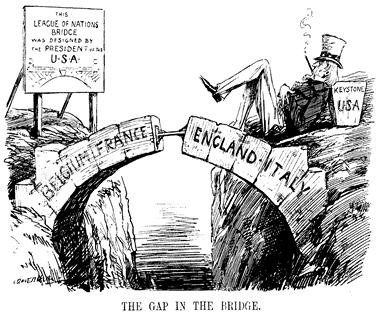
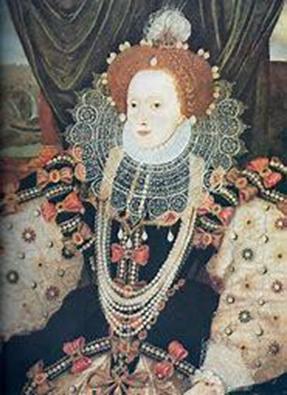
What skills will I need?
You will need to be willing to read and write
You should have an analytical enquiring mind and an interest in why things happen
A good memory is an advantage as detail is important
Being able to give an opinion on a subject is essential to reach the top levels.
What will happen in learning and ILT?
Lessons are heavily based around literacy skills. We will do lots of reading and writing We will learn about events and people, remember and link them together. Analyse how one event leads to another and what is the most important factor in creating change. We will regularly use textbooks and some videos to help discover information In your exercise book you will answer exam style questions and in your topic booklet you will make notes which you can revise from.
ILT is every week and it is an online SENECA quiz to build topic knowledge and an exam question to practice exam skills

Why should I study BTEC Digital IT?
GTA TO EDIT THIS>>>>>This qualification will encourage independence, creativity and awareness of the digital media sector It is designed to assess your application of creative media skills through their practical use. This involves web design, game design, app development and creating digital images using Photoshop It will provide you with essential knowledge, transferable skills and tools to improve your learning in other subjects with the aims of enhancing your employability when you leave education Future careers could include Animator, Computer programmer, Graphics designer, Web developer, Digital video technician, Audio digital technician plus many more
What will I study?
Component 1 -
Component 2Component 3 -
How will I be assessed?
Exam Unit - (Worth 40%)
Component 3 is an examined unit completed on paper
The exam lasts for 1 hour 30 minutes
Coursework - (Worth 60%)
Component 1 & Component 2 are Pearson Set Assignment coursework based and are completed under supervised conditions in class
What skills will I need?
Students who are interested in taking this course should have followed the Key Stage 3 Programme of Study in ICT & Computing
You will need to have a hands on approach to learning with a creative mind that will enable you to create fully functioning digital media products Also good literacy skills and enjoy problem solving as well as the ability to stick to deadlines and targets.
What will happen in learning and ILT?
GTA TO EDIT THIS>>>Planning is an essential part of working in the creative and digital media sector You will hand draw some of the key documents needed to create digital media products and gain an understanding of their application
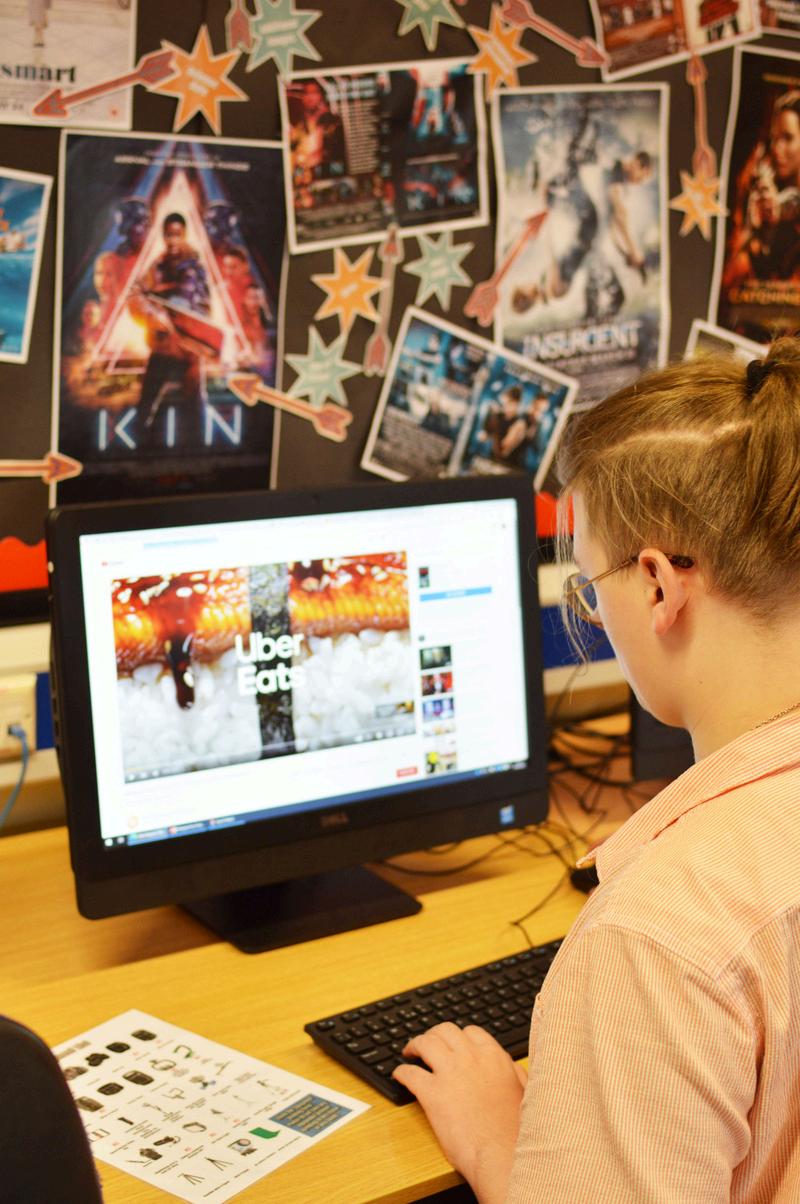
The majority of work is completed on the computer using specialist software. You will research and prepare reports on the use of digital graphics in industry You will learn Photoshop to digitally edit graphics for the creative and digital media sector We also hold competitions to create fun graphics such as editing an image of yourself to fit a theme e g Halloween You will also have the opportunity to take part in national competitions gaining certificates relevant to Computing
You will learn how to use Dreamweaver web creation software to combine components to create a functional, intuitive and aesthetically pleasing website At the same time, you will create some of the website using HTML coding language

Interactive multimedia products are used widely in everyday life and the creative and digital media sector You will learn where and why interactive multimedia is used and what features are needed for a given purpose ILT will be set every two weeks and will be designed to reinforce key skills learnt during lesson time
Why should I study Enterprise and Marketing?
GTA TO EDIT>>>Studying Cambridge National in Enterprise and Marketing equips individuals with essential skills for the dynamic world of business. This specialized course offers a practical understanding of entrepreneurial concepts, marketing strategies, and business operations. By delving into real-world case studies, students gain insights into effective decision-making, customer engagement, and the fundamental principles of successful enterprises.
The Cambridge National in Enterprise and Marketing not only fosters a strong foundation for future business endeavours but also nurtures a mindset focused on innovation, adaptability, and strategic thinking in the everevolving landscape of commerce
What will I study?
Paper 1 -
Paper 2 -
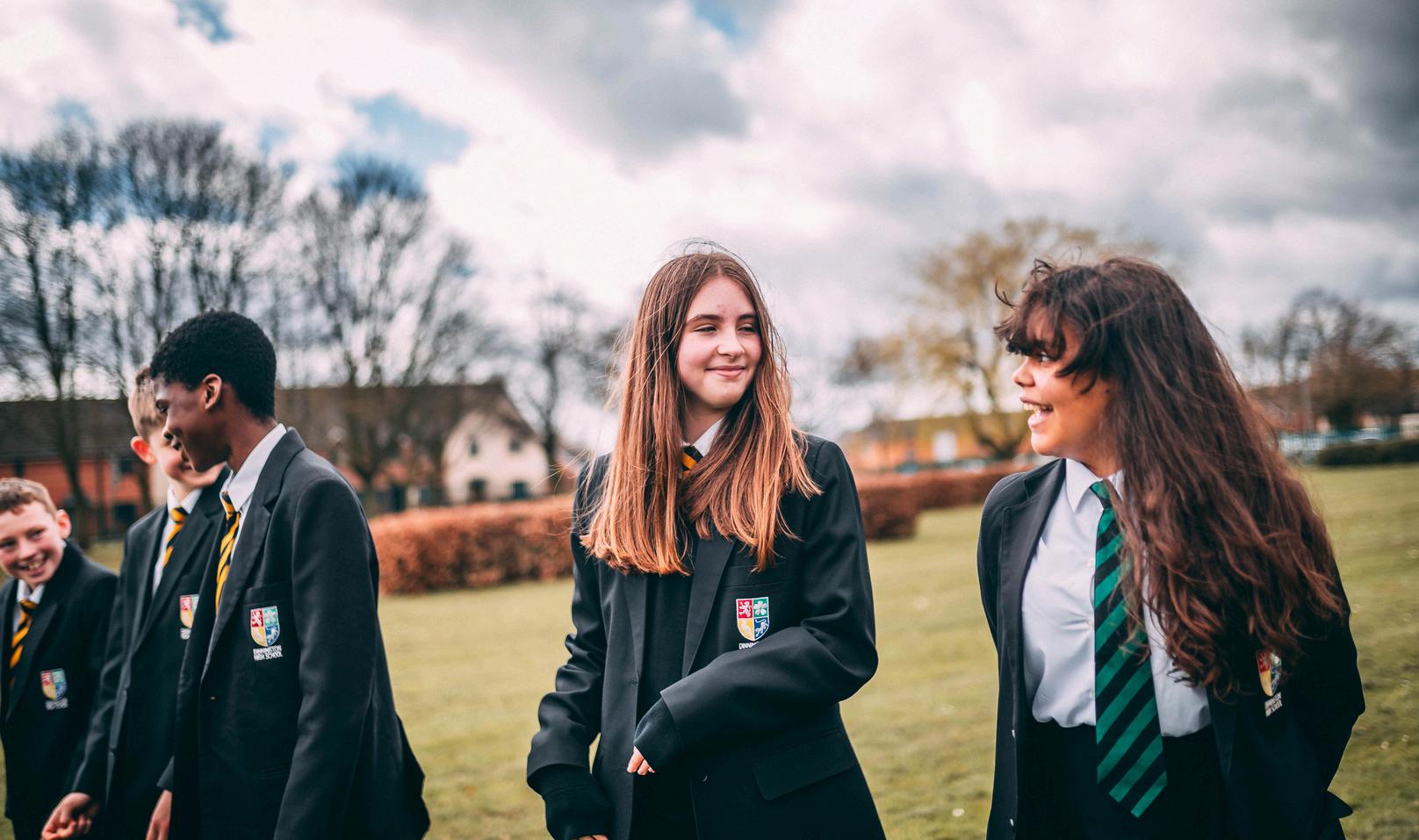
What will happen in learning and ILT?
GTA TO EDIT>>>>>Planning is an essential part of working in the business and enterprise sector You will hand draw some of the key documents needed to design parts of your business proposal and pitch
How will I be assessed?
Paper 1 Exam - (Worth 50%)
Is a written exam paper that is set and marked by OCR
The paper is 1 hr 45min long.
Paper 2 Exam - (Worth 50%)
Is a written exam paper that is set and marked by OCR
The paper is 1 hr 45min long.
What skills will I need?
Students who are interested in taking this course should have a curiosity about how businesses operate. Success in this course requires strong communication, critical thinking, and problem-solving skills. Additionally, creativity, and a keen interest in business concepts are crucial for navigating the coursework effectively and preparing for success in the dynamic field of enterprise and marketing
The majority of work is completed on the computer using Google Classroom You will research and prepare reports on different markets in the industry. We also Conduct research including other peers and students to gather data, e g Icecream taste testing.
You will also study the economics involved with starting and maintaining a business, being introduced to concepts such as viability, revenue and profit.
You will come to an understanding around the psychology of popular business strategies such as strategic pricing Your knowledge will be contextualised with real-world examples of businesses that have used the concepts that you will learn of to their advantage and become success stories
ILT will be set every two weeks and will be designed to reinforce key skills learnt during lesson time, this will form part of your revision of theory topics throughout the course.

Studying the arts offers you freedom in what you study based around your own interests rather than following prescribed topics.
You are encouraged to be independent in your decision making and reflect upon your choices
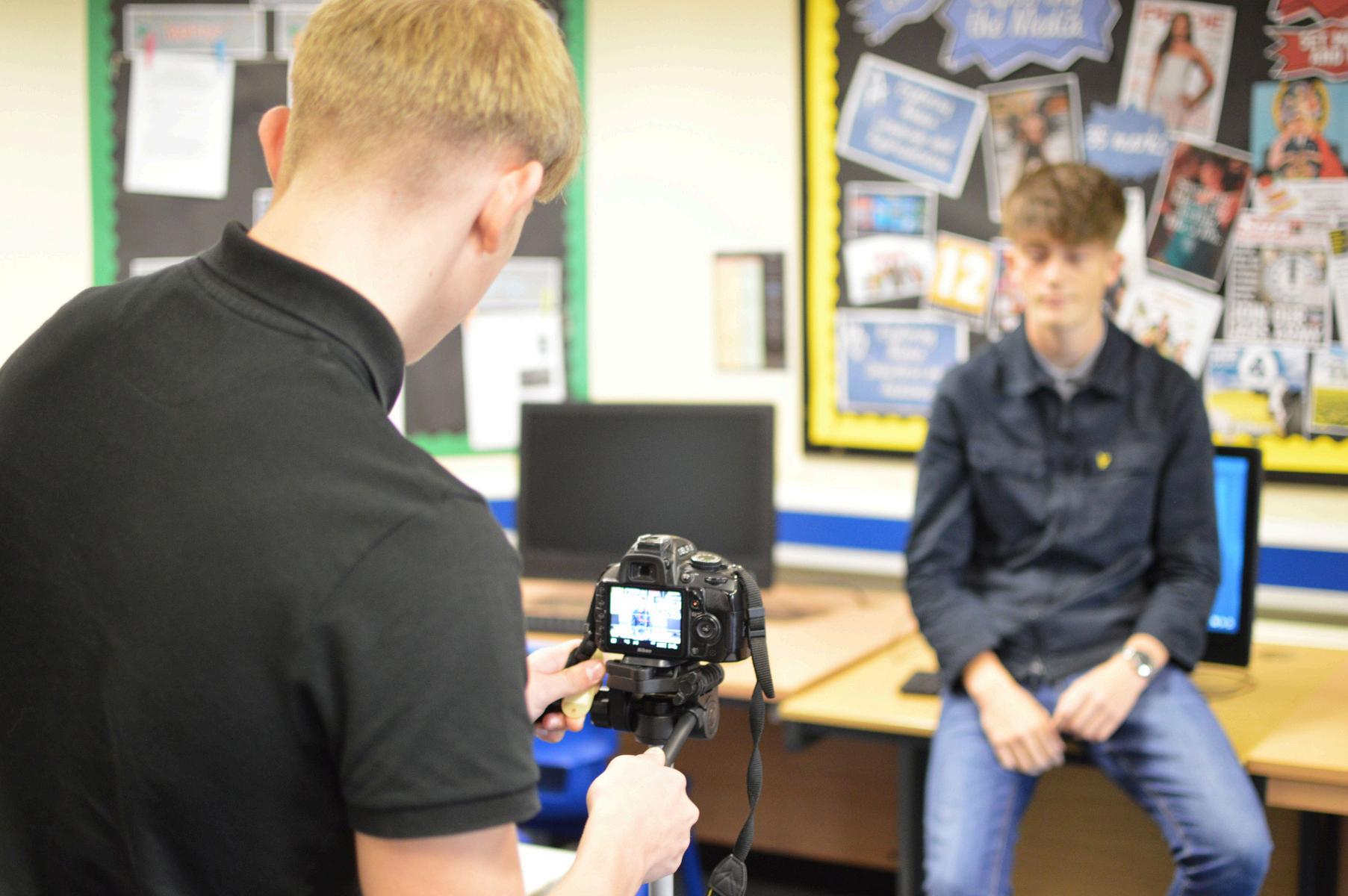
Arts graduates are incredibly employable! Steve Jobs (founder of Apple) believed his success was due to his hiring of artists and designers who were fascinated by technology.
Creativity is now ranked third in the top ten skills desired by employees, moving up from tenth place in 2015 1 in 8 adults in London work in the creative industries; 1 in 11 in the UK The creative economy has risen by 13 7% since 2011 against an average increase of 2 1% in total jobs in the wider economy.
You will learn a range of transferable skills that will be essential in all jobs such as: resilience, creative thinking, independence and observation skills.
Component One: Personal
This is a portfolio of work that shows coverage of the four assessment objectives
You will be given a title as a starting point, which you then independently research to develop ideas. You will discover and mimic photographers that influence you and trial and test a variety of techniques from light painting, moving image, digital image manipulation, practical image manipulation, contemporary and traditional photography techniques. You will develop a personal style, and form opinions about your work and the work of others This project will conclude with you creating a final outcome in a 10-hour formal assessment (over two days)
Component
This is a mini portfolio of work in which you respond to a starting point set by the exam board In the same way as component one, you will cover all four assessment objectives whilst undertaking this creative journey You can create work in the media of your choice exploring new techniques or refining favourites
How will I be assessed?
Component One: Personal portfolio – 60%
Component Two: Externally set assignment – 40%
It is essential that all four Assessment Objectives are met by each unit of work, or project. 25% of the marks are available for each Assessment Objective
Students are assessed on their ability to:
AO1 Develop ideas through investigations, demonstrating critical understanding of sources
AO2 Refine work by exploring ideas, selecting and experimenting with appropriate media, materials, techniques and processes
AO3 Record ideas, observations and insights relevant to intentions as work progresses
AO4 Present a personal and meaningful response that realises intentions and demonstrates understanding of visual language
What skills will I need?
The art GCSE course offers students the opportunity to develop their creative ideas and practical skills in a variety of ways. Students will explore a range of photographic styles and techniques inspired by both historical and contemporary photography. Students will learn a range of practical skills such as special effects and also explore digital media. The projects are more thematic than at KS3 and allow the students to explore their own personal ideas and specialisms of their choice. Students are encouraged to work from observation and individual research in order to creatively develop their own ideas using a variety of practices and media – and demonstrate a skilful and sensitive command of techniques
Students will be expected to demonstrate the ability to record ideas, observations, insights and independent judgements visually and through informative written annotation, using suitable specialist vocabulary. The purpose of integrated written annotation is to encourage students to analyse critically, evaluate and reflect on their own work (and that of others )
In order to be successful, a high degree of interest and commitment is more important than having an artistic ability.
What will happen in learning and ILT?
Lessons- In lessons students will complete research tasks, learn editing techniques, complete photoshoots and present work on digital portfolios Students are expected to complete photoshoots both in and outside of learning as part of their projects
There will be opportunities to work outside the classroom on location based photoshoots and educational visits
As projects develop, students will have a personalised plan which is updated during 1:1 tutorials. Students must keep up with tasks and ILT must always be completed as this is actual coursework; so students need to be organised, responsible and proactive
ILT- Students are expected to complete a minimum of two hours ILT per week. We recommend this to be undertaken at the weekend when students can spend two consecutive hours on their practical tasks
This course will allow you to experience different sporting situations and develop a wide range of sport analysis and leadership skills, gaining new theoretical knowledge linked to health and fitness You will explore different types of participants and types of providers of sport and physical activity, looking at technology and equipment available for participation.
This course can lead to a wide variety of different careers, such as:
A sports performer/official
Sports coaching/ teaching
Sports scientist
Personal trainer/Army PTI
Physiotherapist/Sports team doctor/ Sports Psychologist
This course is made up of 3 Components.
Component 1: Preparing participants to take part in sport and physical activity
Component 2: Taking part and improving other participants sporting performance
Component 3: Developing fitness to improve other participants performance in sport and physical activity
How will I be assessed?
Component 1 and 2:
Internally assessed by your teacher and externally moderated
Worth 30% of overall grade each Each Component is made up of 3 Learning Tasks/Aims ranging from: Presentations
Practical Tasks-Video/picture evidence
Extended writing pieces
Component 3: Exam unit
Externally assessed written exam
1hr 30mins
60 marks
Worth 40% of overall grade
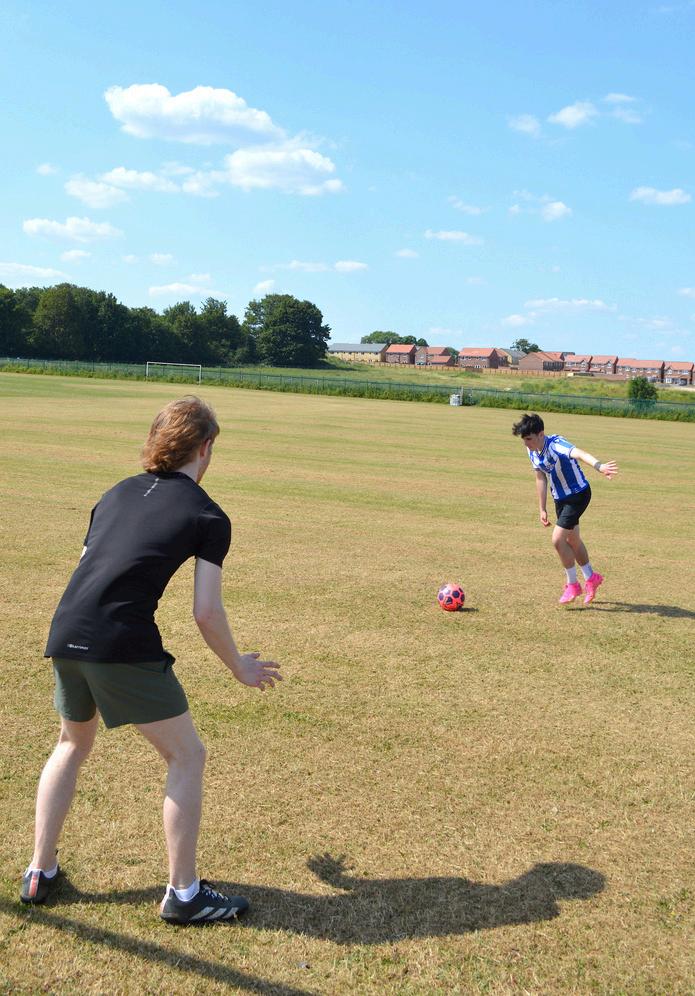
What skills will I need?
Good levels of performance in range of sport and leadership roles
A keen interest in health and fitness
Attendance at extra-curricular clubs/teams
Be able to work effectively independently and as a member of a team
Be able to meet deadlines
Confidence
Good communication skills
What will happen in learning and ILT?
Your lessons will be divided into theory and practical lessons
Theory lessons will:
Introduce you to the content of each learning aim
Allow you to gain knowledge understanding of unit content
Present your learning to support your practical performance
Mostly delivered in IT rooms
Practical lessons will:
Develop key practical skills to support each learning aim
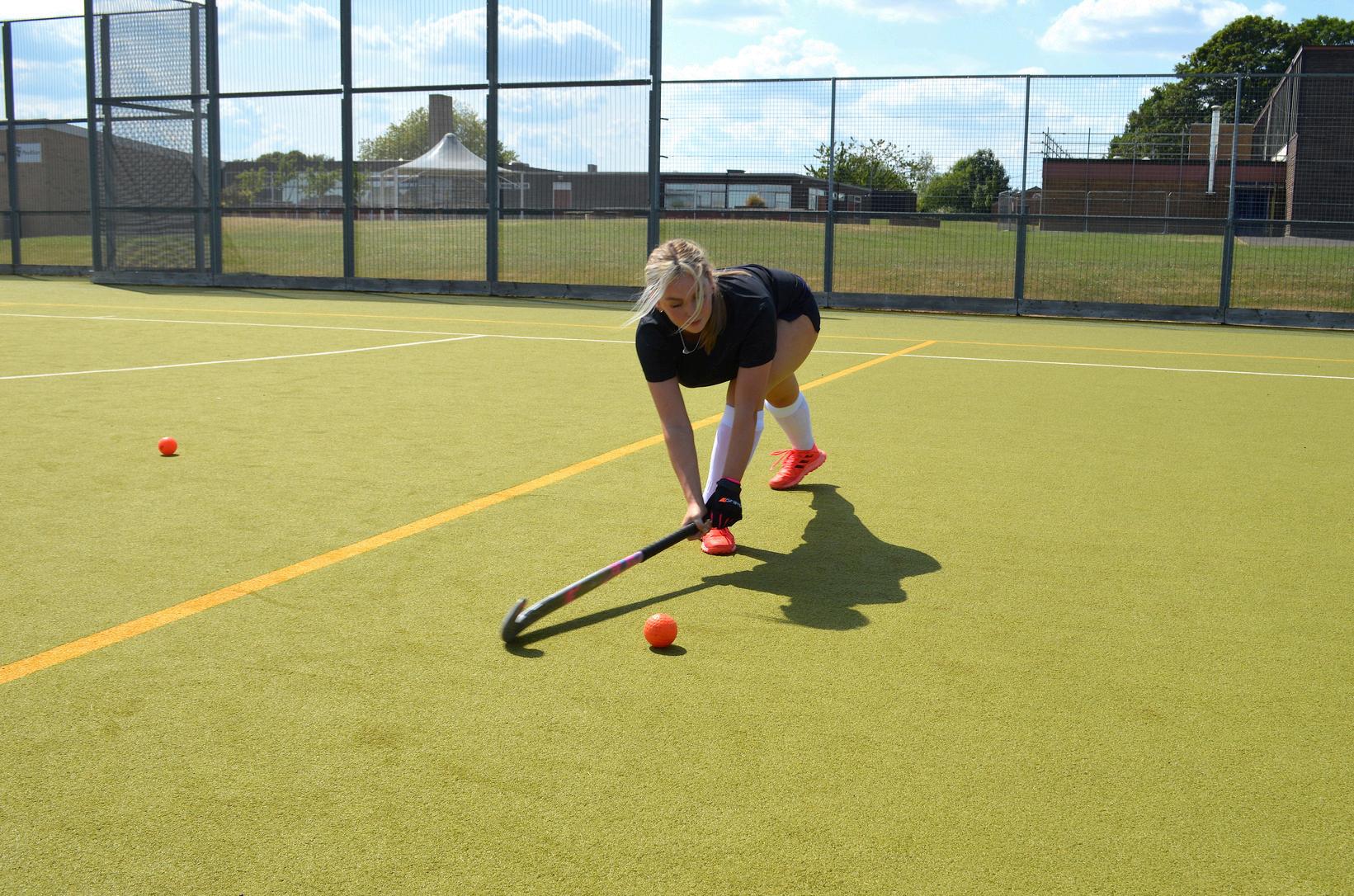
Allow you to practically demonstrate your learning and provide evidence to support internal assessment
ILT is an expectation to support planning and completion of each Learning Aim
Why should I study Spanish and French?
Besides making you a more attractive candidate to universities and employers, a second language opens doors to worldwide travel and communication The study of a foreign language will help if you are considering the following careers:
• Journalist / Foreign Correspondent
• Air Cabin Crew
• Tour Guide
• MFL teacher / ESOL teacher
• Interpreter
• Translator
• HR Officer

• Logistics/Distribution Manager
• Marketing Manager (social media)
• Charities Administrator
• Investment Analyst
• Lawyer
• Advertising / Marketing
• Publishing & Media
The Spanish /French GCSE course is made up of 3 themes:
People and lifestyle (Identity and relationships with others, Healthy living and lifestyle, Education and work)
Popular culture (Free time activities, Customs, festivals and celebrations, Celebrity culture)
Communication and the world around us (Travel and tourism including places of interest, Media and technology, Environment and where people live)
The Spanish/French GCSE is assessed at Foundation or Higher tier and students take all four papers at the same tier
The four papers (Listening, Speaking, Reading and Writing) are each worth 25% of the final grade
The length of each paper varies depending on whether you are being entered at Foundation or Higher tier
What skills will I need?
If you have any of these qualities, then Spanish/French is for you!
Active listener
Confident communicator
Meticulous reader and writer
Curious about Spanish/French speaking countries and their way of life and language
What will happen in learning and ILT?
In lessons, we will build on the topic and grammar work you will have studied throughout KS3 and we will cover all four skills through reading, writing, listening and speaking practice tasks You will be expected to take part in speaking pair work activities and we will practise examstyle questions throughout each theme
ILT will be set weekly through vocab learning tasks and reading or writing exam-style tasks, including translations from French into English and from English into French, in order to extend and consolidate class work
The benefits of studying Separate Science is that you will be able to develop a deepened understanding of the processes and methods of science, through different types of scientific investigations. This will help you to answer complex scientific questions about the world around you and help you make sense of a multitude of phenomena that makes our planet as special as it is Separate Science is a challenging course that will develop curiosity and test the most able of learners It will require you to question why different processes happen the way they do and seek out detailed scientific ideas

There are six exams in total available in foundation and higher, each lasting 1 hour and forty five minutes This is composed of two Biology, two Chemistry and two Physics exam papers. Each exam makes up 50% of your total GCSE
In each exam, students will have to answer two longer answer exam questions, each worth six marks.
Separate Science is a fantastic stepping-stone into higher education The content of this GCSE will provide a depth of knowledge for students who are keen to study A Levels at College or Sixth form and who wish to proceed with a career within the NHS, engineering or a laboratory-based role Quite often, students who study Separate Science will proceed at A Level to study all three Sciences and mathematics
The Separate Science course consists of composites in Biology, Chemistry and Physics – just like Combined Science The additional content which is specific to Separate Science is outlined below:
Biology – Students will learn about additional aspects of human biology such as the mechanism of protein synthesis, the function of the kidney and other hormones and aseptic techniques
Chemistry – Complex calculations are a common feature of the additional Chemistry content requiring students to complete gas calculations. They will also learn about testing for ions
Physics – Using models to explain phenomena such as static electricity, electric fields and the development of our Universe Students will also investigate the life cycle of star and evidence for the Big Bang theory.
In Separate Science, you will be assessed on your ability to apply and analyse Scientific ideas that will require a deepened understanding of the topic being studied
Students who study Separate Science will leave the Academy with three GCSE’s – one in each Specialism (Biology, Chemistry & Physics)
This GCSE is 100% exam based.
Each paper will also assess mathematical ability. This varies per paper - 30% of the Physics paper, 20% Chemistry and 10% Biology.
What skills will I need?
To be a successful Separate Science, you will need to have a genuine love and curiosity for the subject You should be a passionate Scientist who will always be willing to show resilience and determination when faced with complex problem solving tasks. You will need to communicate ideas/theories scientifically using sophisticated language A love and ability in maths is essential.
What will happen in learning and ILT?
During your Separate Science lessons, you will work and develop skills as you would if you studied Combined Science but venturing into a deeper level of understanding in some composites You will undertake a variety of lesson styles ranging from practical investigations, analysis of data and problem solving You will share and communicate your ideas with others to gain a wider insight into the concepts and theories of others, including the work of some of the world’s most famous Scientists
You will be set at least two pieces of ILT on a weekly basis, which will focus on your ability to apply content that you have learnt to new situations Your teacher will expect you to read around the subject to develop your love and curiosity of all three Sciences and to impart this knowledge on others in the class. You will be able to confidently discuss the contributions of others and make suggestions of how moving forward, Science can mould the everchanging world that we live in